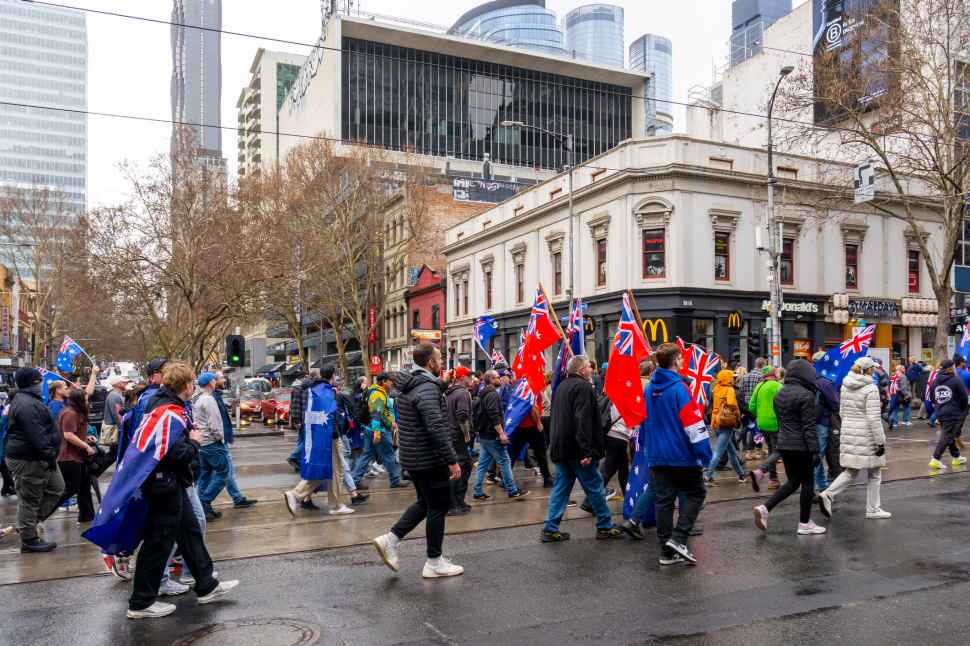As misinformation spreads and trust in democratic institutions declines, there's a global push to understand and stop this threat - to protect public trust and strengthen democracy.
Misinformation and disinformation are on the rise - and experts say they’re undermining public trust, fuelling radicalisation, and putting democracy at risk in Western nations such as Australia.
“Technology has given us unprecedented access to information,” says Professor Rodrigo Praino, Director of the Jeff Bleich Centre for Democracy.
“But now, many people struggle to tell the difference between what is true and what is misinformation or disinformation.
“This blurred line poses a serious challenge to informed decision-making and, ultimately, threatens our democracy.”
The Flinders Wicked Problems Report, based on responses from over 30,000 Australians, found misinformation is one of the public’s top concerns. In response, researchers at Flinders are working to understand how false information spreads, and how to stop it.
Through the Jeff Bleich Centre for Democracy and Disruptive Technologies, an international network of researchers, government, and industry have come together to find practical, evidence-based ways to protect public trust and support fair elections and informed decision-making.
One major concern for experts is the rise of conspiracy theories, which are gaining traction across the globe. From the origins of COVID-19 to election results, almost nothing is off limits.
But in order to stop the spread of conspiracy theories, we first need to better understand them. JBC Research Fellow Dr Jean-Nicolas Bordeleau is doing just that in the book Conspiracy Theories and their Believers: A Comparative Outlook, co-authored with Professor Daniel Stockemer of the University of Ottawa.
MORE: Space exploration, online interference, AI: Safeguarding our cyber security
Using survey data from eight nations - including Australia, Brazil, Canada, Germany, Lebanon, Morocco, South Africa, and the United States - the authors examine which theories are most popular in each country and what kinds of people are most likely to believe them.
They found that while some conspiracy theories are global, others are shaped by local issues.
In Australia, country-specific conspiracy theories exist in relation to the disappearance of former prime minister Harold Holt who disappeared while swimming in 1967. While his death was most likely caused by accidental drowning, it spawned numerous conspiracy theories, many of which believe there was a cover-up by a foreign government.
An international conspiracy theory that has gained traction in Australia is the Australian variant of QAnon which emerged in the country in 2018. QAnon began as a set of fabricated claims made by an anonymous individual who claims to be a high-level American government official. They say that a group of cannibalistic, Satanic pedophiles are actively working against the Trump administration and that Donald Trump is fighting this group of Satan-worshiping child molesters. It was the rolling COVID-19 lockdowns in Australia that really saw these QAnon theories spread online.
“Understanding the factors and characteristics which make people more prone to conspiracy beliefs is the first step in developing strategies to prevent the spread of conspiracy theories,” Dr Bordeleau said.
“We’re building on our existing work to shape policies and interventions that will reduce beliefs in conspiracy theories.”

Protecting democracy from within
As the impact of misinformation and conspiracy beliefs continues to be explored, researchers are also turning their attention to the bigger picture - how political division and radical ideologies are affecting democratic resilience.
Political division and extreme views are putting pressure on our freedoms and tearing communities apart – and we’re already seeing it in action in the recent anti-immigration rallies that have seen different protest groups clash both here and abroad.
Flinders’ Professor Emma Thomas, Deputy Director of the Jeff Bleich Centre, has found through her work that believing in conspiracy theories can make people more likely to protest, including about issues like immigration. But this doesn’t happen the same way everywhere. In wealthier countries, this link is weaker. In poorer countries, conspiracy beliefs can lead to more harmful protests.
Surprisingly, this connection is stronger in democracies. Democracies allow people to protest, but they also make it harder for protests that target or blame minority groups to succeed.
MORE: The next steps for marine defence in South Australia and its impact for you
To better understand these issues, Professor Thomas, along with Laura G. E. Smith from the University of Bath, have explored the four key forces that are shaping today’s political landscape. These are:
politicization (becoming more aware of political issues),
polarization (taking more extreme positions),
radicalization (being drawn toward harmful or disruptive ideas),
activation (gaining the ability and resources to take action, like protesting).
These processes are deeply connected and can lead to positive public engagement or harmful conflict, depending on how they unfold.
The researchers argue that while strong opinions and frustration can motivate people to act, they need the support and tools to actually do something about it. People need to know how to organise or join a protest, have access to social networks or online platforms, feel emotionally ready, and have the time, money, or transport to show up. Without these, even the most passionate voices may stay silent.
The study also highlights how digital technology and global instability are making these issues more urgent.
Understanding the forces that drive people to take political action gives policymakers and community leaders a clearer idea on how to support healthy democratic participation while avoiding unintended harm. It also encourages thoughtful, balanced responses that protect free speech and protest, while also addressing the deeper causes of division and unrest.
"Technology has given us unprecedented access to information, but now, many people struggle to tell the difference between what is true and what is misinformation or disinformation."
- Professor Rodrigo Praino
Director of the Jeff Bleich Centre for Democracy.
![]()
Sturt Rd, Bedford Park
South Australia 5042
South Australia | Northern Territory
Global | Online
CRICOS Provider: 00114A TEQSA Provider ID: PRV12097 TEQSA category: Australian University








